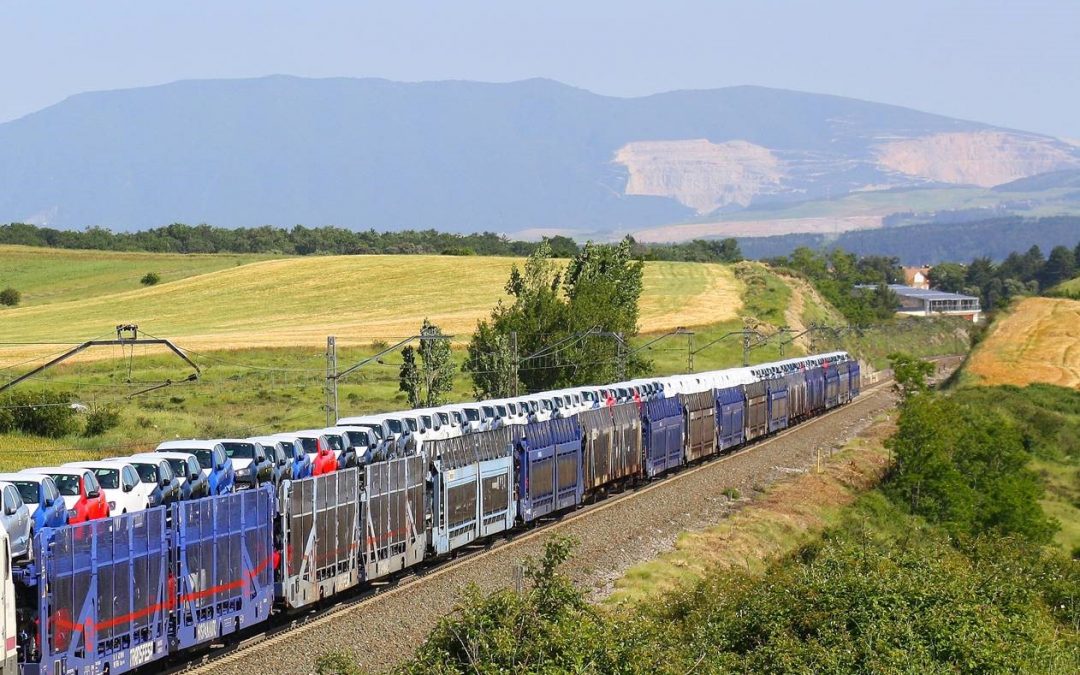- Volkswagen Navarra achieves that by 2022 more than 50% of its vehicles will have been transported by train.
- In 2021, Volkswagen Navarra and Transfesa Logistics managed to reduce their carbon footprint by 5,245 tonnes of CO2 with the automotive factory’s commitment to rail. In 2022, they have surpassed this by jointly reducing their emissions by 8,790 tonnes of CO2.
Transfesa Logistics has helped Volkswagen Navarra reduce its carbon footprint by 8,790 tonnes. In total, during 2022, 110,116 vehicles were transported with Transfesa Logistics on 14 routes, a figure that represents more than 70% of all rail operations carried out last year. In Spain, the destinations of these services were Barcelona, Santander and Tarragona, while international shipments with Transfesa Logistics reached Germany, Austria and Switzerland.
On these journeys, by opting for the train, emissions have been 1,309 tonnes of CO2, compared to the 10,099 tonnes that would have been achieved if the same journeys had been made by road (lorry). An annual saving of 8,790 tonnes of CO2 has therefore been achieved. These data support Volkswagen’s goal of reducing the environmental impact of all Volkswagen factories to zero by 2050.
According to Igone Lecea Lacunza, Volkswagen Group account manager at Transfesa Logistics, “In 2022 we have not only achieved our goal of maintaining the rail transport quota for the Volkswagen Navarra factory, but we have surpassed it. This result has been possible thanks to the effort and commitment of both our organisation and the Volkswagen Group, who have worked together to achieve a reduction in CO2”.
This objective is fully in line with the consortium’s strategy of manufacturing electric vehicles with zero emissions, and with Transfesa Logistics’ strategy of prioritising sustainable development, for which it has been awarded by the #PorElClima platform for being one of the 10 best companies for its climate actions.
For Isabel Núñez, Environment Manager at Transfesa Logistics, “Transfesa Logistics is positioned as Volkswagen’s climate ally, helping it to reduce its carbon footprint in scope 3 of its activity. Because rail is more sustainable than road, Volkswagen and Transfesa Logistics together contribute to the progressive decarbonisation of freight transport, paving the way towards climate neutrality. Intermodal transport services based on rail as a more sustainable means of transport are increasingly in demand by customers committed to the environment, more valued by end consumers and respond to one of the great challenges facing the planet and today’s economy, the climate emergency”.

